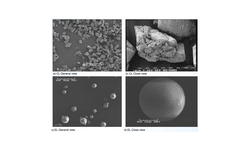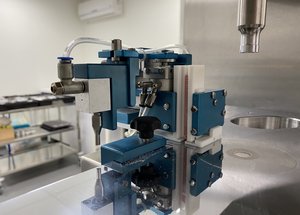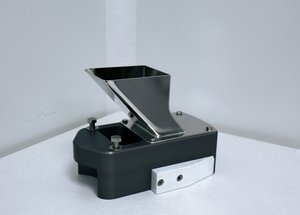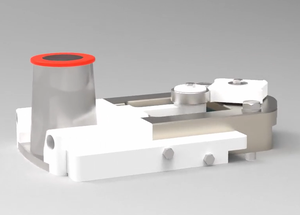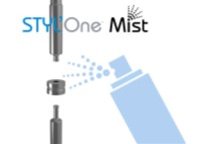Scientific papers
Background: This study aimed to assess the compaction behavior of a model two-component amorphous spray-dried dispersion system in comparison to unprocessed excipients under simulated rotary tablet press production conditions.
Methodology: The stabilizing polymer, hypromellose acetate succinate (HPMCAS), was solubilized and spray-dried both with and without sodium lauryl sulfate (SLS). The effects of compression force and speed on the tabletting process were quantified through measurements of tablet tensile strength, compaction energy, and Heckel analysis.
Results: The addition of the surfactant SLS, whether spray-dried or physically mixed, led to a reduction in tablet strength. However, the impact on unprocessed excipients was comparatively less than that observed with spray-dried excipients. Tablets containing 1% (w/w) SLS tended to cap when compressed at higher speeds, supported by elevated elastic energy values indicating substantial uniaxial stress during decompression. At 3% (w/w) SLS, tablets could not be produced at high speeds. Heckel analysis revealed greater strain rate sensitivity of HPMCAS when spray-dried in the presence of the surfactant. Pre-compaction exposure to various relative humidities had no effect on tablet strength.
Conclusion: This study demonstrates that the spray drying of HPMCAS in the presence of a surfactant influences the compressibility of the material, resulting in reduced tablet strength, increased elastic deformation, and capping.
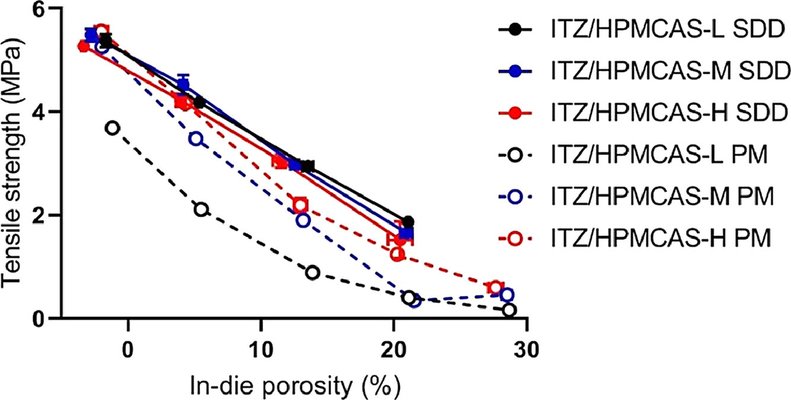
Comments
No comments posted yet.
Add a comment


